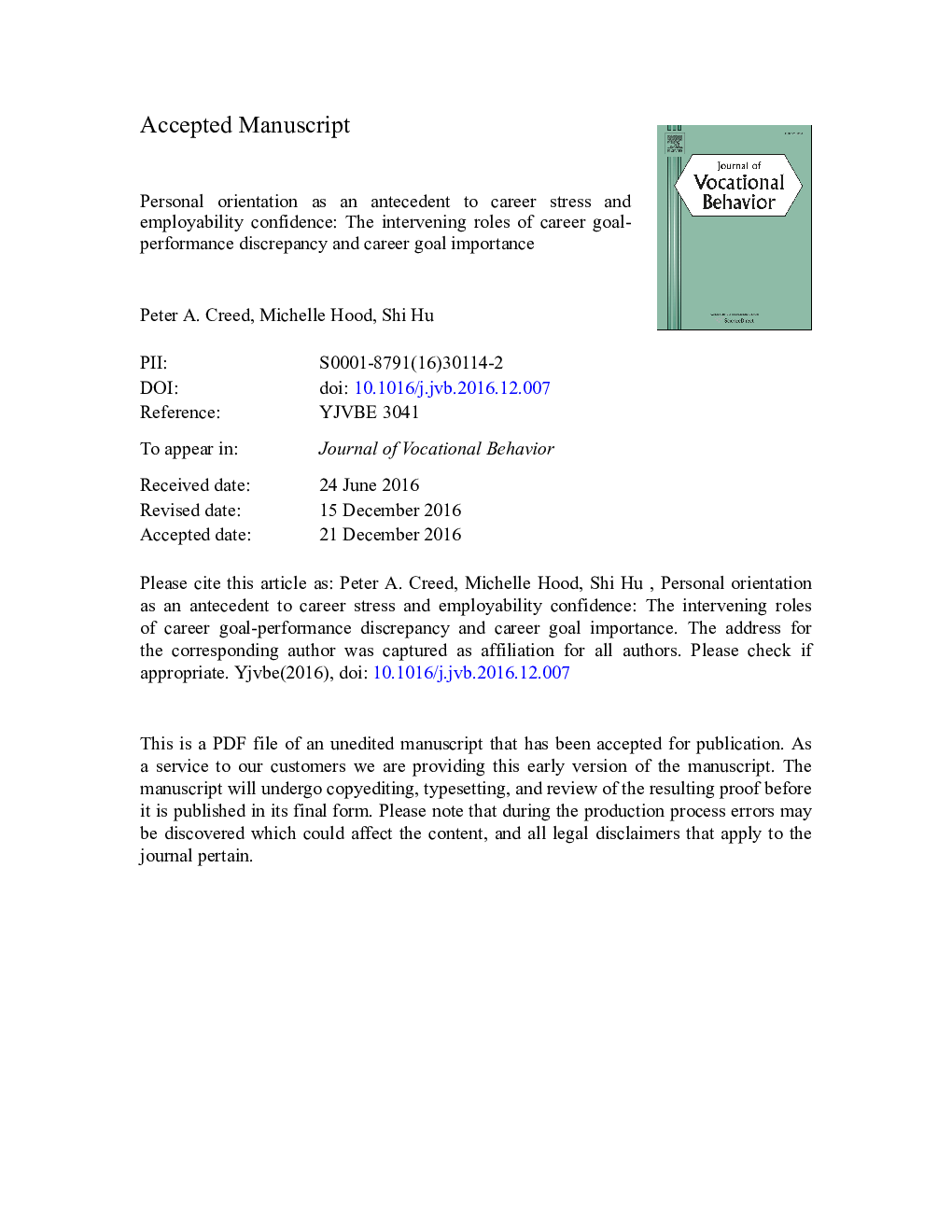| Article ID | Journal | Published Year | Pages | File Type |
|---|---|---|---|---|
| 5035154 | Journal of Vocational Behavior | 2017 | 42 Pages |
Abstract
We assessed the underlying mechanisms associated with career related stress in young adults by testing a model in which personal orientation (proactivity and interpersonal rejection sensitivity) was related to well-being (career distress and employability confidence), this relationship was mediated by career goal-performance discrepancy, and career goal importance moderated the relationship between orientation and discrepancy, and moderated between orientation and well-being via discrepancy. Participants were 564 young adults enrolled in a wide variety of first year university courses (77% female; mean age = 20.3 years). We confirmed that proactivity (negative) and interpersonal rejection sensitivity (positive) were associated with discrepancy, and that discrepancy was associated with career distress (positive) and employability (negative). Discrepancy operated as a mediator in these relationships, and career goal importance moderated between both personal orientations and discrepancy, and moderated the mediated relationship between personal orientation and both outcomes. The study identifies important antecedent variables to career-related well-being and highlights underlying mechanisms that potentially lead to its development. In this way, the study extends theory related to career goal management and informs interventions aimed at career development.
Keywords
Related Topics
Social Sciences and Humanities
Business, Management and Accounting
Marketing
Authors
Peter A. Creed, Michelle Hood, Shi Hu,
